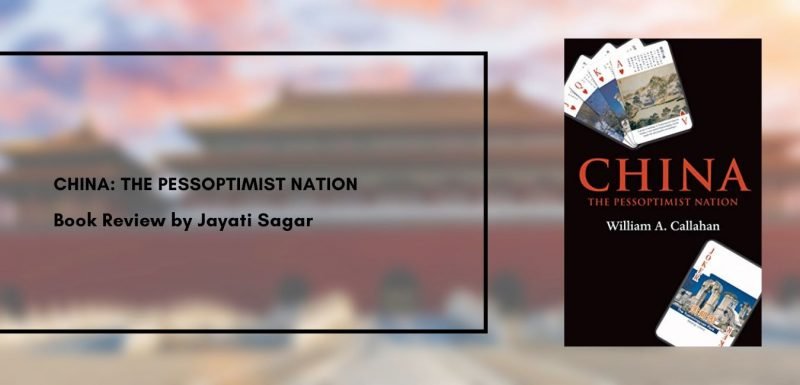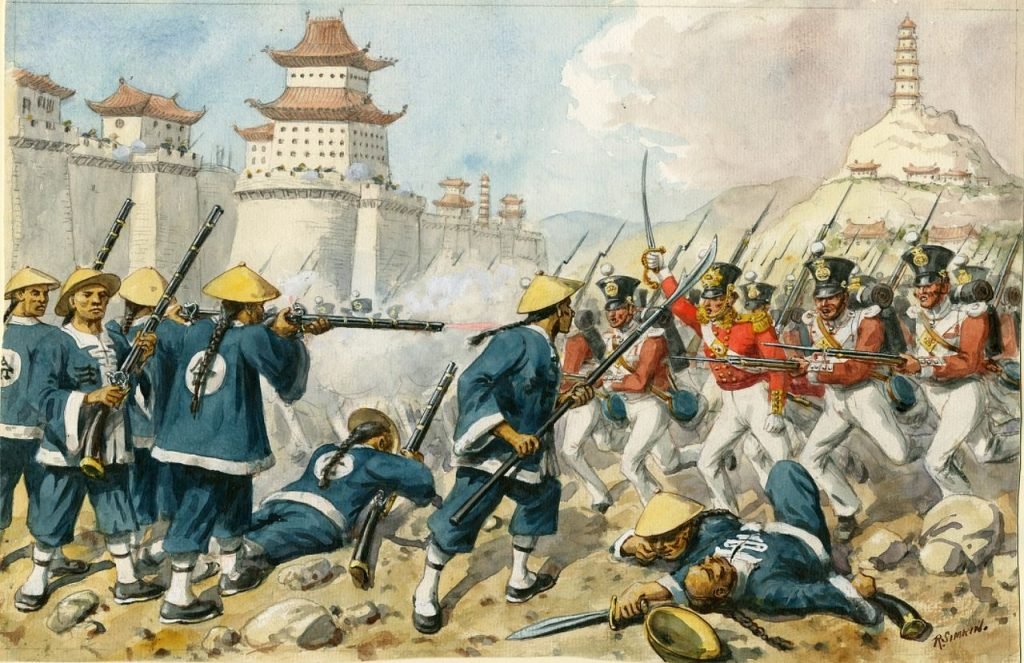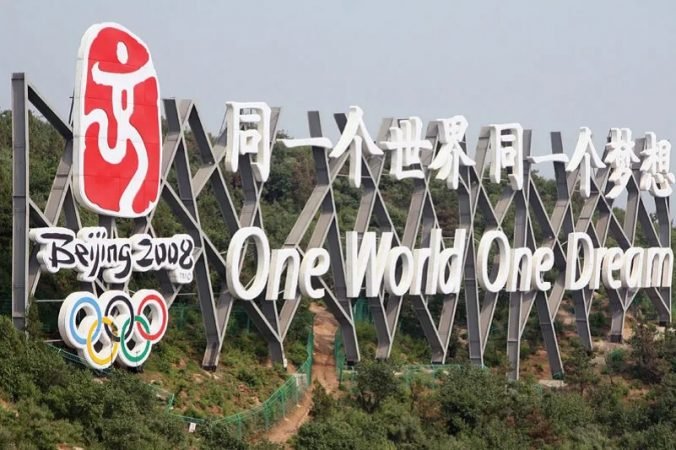[Book Review] China – the Pessoptimist Nation

Book author: William A. Callahan
The book opens with a William Faulkner quote which goes like “The past is never dead, it’s not even past.” The author, William A. Callahan through this quote tries to set the tone of the book whose main focus is on Chinese history, more specifically, its national humiliation days wherein Callahan tries to highlight that her past is not just past, rather a rigid present that shapes Chinese foreign policy in the twenty-first century.
According to Mao’s dictum, “Make the past serve the present, and make foreign things serve China,” rightly describes how the current Chinese foreign policy largely revolves around themes of security and identity. This book seeks to examine China’s pessoptimistic nature by analysing Chinese understanding of their current successes and past failures. The author describes China as a pessoptimist nation, and by doing so he engages the readers on how China’s growing optimism can be understood through its enduring pessimism and vice versa. The author’s emphasis mainly lies in understanding the current successes of China as a result of its past failures. This in turn covers a large area on Century of National Humiliation. It’s current successes are highlighted by giving a detailed description of the 2008 Olympics. The 2008 Olympics was seen as China’s opportunity, ‘their 100-year-dream’ towards rising peacefully through soft power and cultural diplomacy instead of their military and economic strength alone. Despite the fact that China and the International Olympic Committee (IOC) is conditioned to present the games as an ‘apolitical event’, the Olympics however, withhold the power of tying international relations to identity and security.

I would like to praise the author for providing such an extensive book which covers China’s Century of National Humiliation to the extent that it is able to draw an understanding of current Chinese policies and insecurities. The author has beautifully painted a picture of China in the eighteen and nineteenth centuries to that of its current reforms. The book is an attempt to understand China’s emotional outburst about the Century of National Humiliation something more than a thing of the ‘past’. Since ‘guochi’ (national humiliation) discourse isn’t given much significance by Western scholars, the author tries to highlight themes of history, politics, and identity in a more prominent discourse of national insecurity. This book is a product of author’s interest in Maps of the Century of National Humiliation in Modern China which oddly combines security studies and geography.
The language used by the author is mostly lucid yet maintains the academic integrity of events. The book is definitely a piece of academic relevance since is covers everything from national humiliation days to foreign brothers and domestic strangers, Opium War, Sino-Japanese Relations, the Nanjing Massacre to the Chinese thinking in the twenty-first century and its rise as a pessoptimist nation. It isn’t meant for an easy read, since it covers a vast length of information which requires critical analysis of the author’s chain of thought. The fact that the author tries to bring in an alternate discourse that sympathises with China as a country, is something not many Western scholars have done. Callahan vividly explains China’s nature through its course of historical events (failures) to highlight the current Chinese attitude and thinking (especially in the field of security studies). There aren’t any huge jumps in the author’s writing. Although, Callahan does switch in between from China’s modern history of the nineteenth century to its current policies and strategies which are the outcome of different and complementary ways of understanding Chinese identity. The author draws upon Paul Kennedy’s famous thesis on “the rise and fall of the great powers”, to analyse the “fall and rise”, of China from its guochi days to glory.

The context of the book in which it was written is suitable for all times, until the current year. Since there is a smooth transition between the past and present, this makes it relevant for all scholars, academicians and sinologists to delve into China’s modern history and draw parallels to its current functioning. The author does not contradict himself but rather uses recent events to connect it to Chinese history. For instance, in the first chapter, the author tries to connect the 2008 Olympics and the series of performances that followed to China’s belief system and her history of national humiliation. The following line depicts how Callahan weaves between the past and present,
“As we saw in the opening ceremony of the Olympics, Beijing’s idealized view of imperial China is constantly repeated as a way of explaining how China’s peaceful rise is not a threat, but an opportunity for all to prosper in a harmonious world. These twin themes of victimization and civilization have been quite successful in shaping China’s image at home and abroad: American military analysts not only recognize the allure of this soft power strategy but even uncritically repeat China’s idealized history.”
It is an important book for anyone interested in the field of international affairs or even political scientists. Although it can be enjoyed by anyone who likes to explore a country’s modern history. The book adds new knowledge to the existing literature since it views the world from a Chinese lens rather than most of Western thinkers. It provides a rich amount of information of how, when and who is China, which in turn helps us understand the current Chinese behaviour and strategies. It very well bridges the gap between the current geopolitical crisis that separates China from the rest of the world. An excellent book for anyone keen to understand Chinese behaviour as a result of its dark history. I would give this book a nine out of ten since there could have been more emphasis laid on examples from the twenty-first century.



















